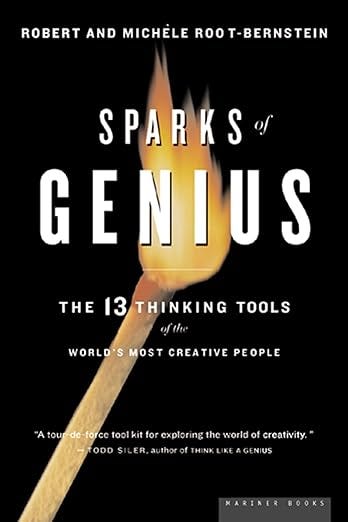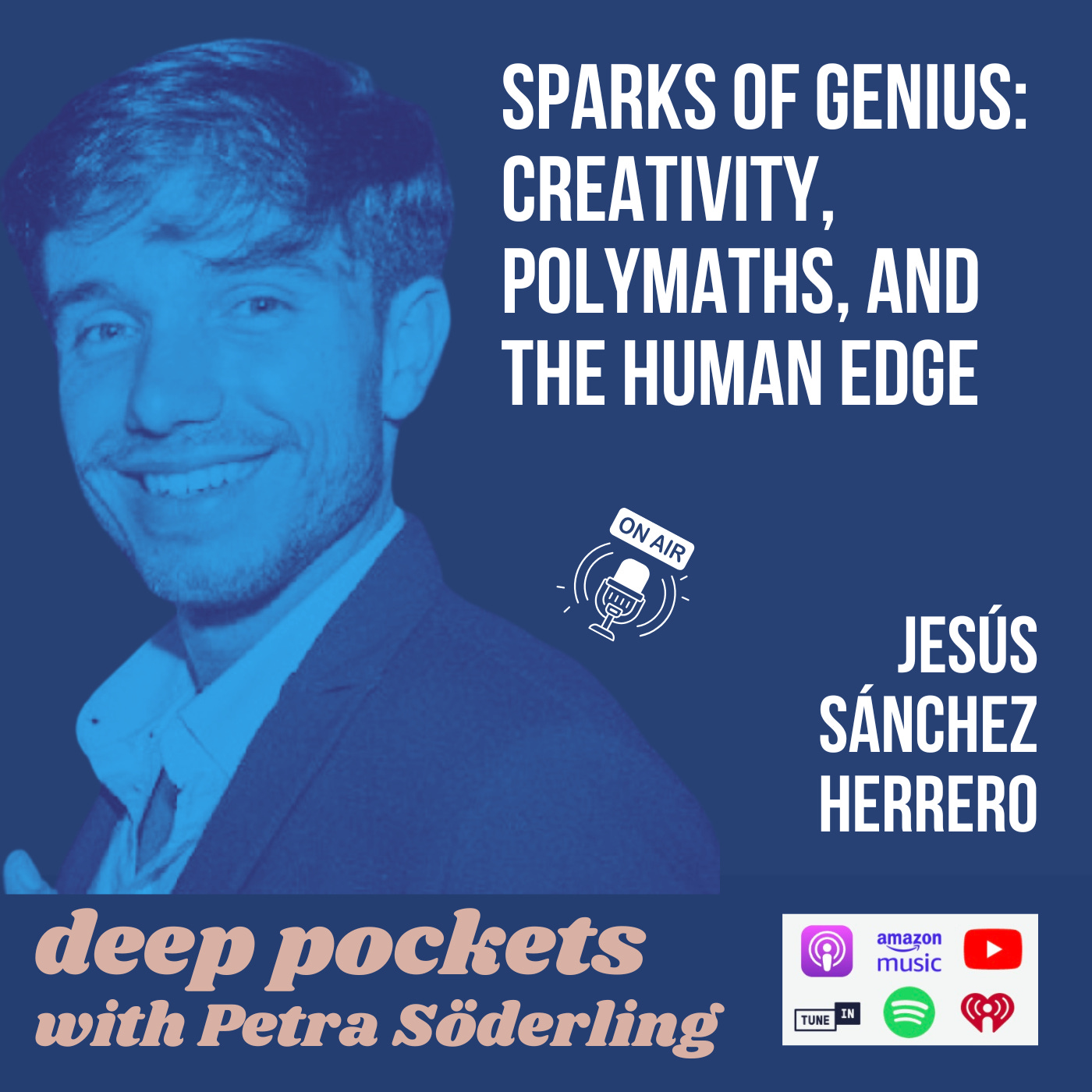Sparks of Genius: Creativity, Polymaths, and the Human Edge
What are polymaths? Is it strictly human?
Earlier this year, I found myself at a noisy networking dinner, seated in a corner at the far end of a long table. Next to me was a group of young professionals, and away from the crowd, our conversation went beyond your usual conference pleasantries. We discussed science and technology, openly shared successful and failed career paths, and what we want to do with our lives. (I hope they weren’t too discouraged that someone my age is still searching lol).
In the middle of this exchange, one of the guests, Jesús Sánchez Herrero, pulled out a book he said he carried everywhere with him. This book, he says, has really changed how he approaches science, careers, and in general, problems in life. The book was Sparks of Genius: The 13 Thinking Tools of the World's Most Creative People by Robert and Michèle Root-Bernstein.
I was fascinated by this, what is this book and why would someone carry it with the at all times? We talked some more, and soon I found myself being Jesús’ mentor. Over several online sessions, we discussed everything from business to communications, all the way to motivations of people, trust and other humanities.
During one of these vivid conversations I realized we should be recording this. Hence, this latest Deep Pockets podcast episode Sparks of Genius: Creativity, Polymaths, and the Human Edge.
About this book
Robert and Michel are a couple, he is originally a professor of physiology at Michigan State University, he has degrees in Biochemistry and History of Science. In 1981, he was awarded a MacArthur Fellowship, the "genius grant". And she, Michele, has a PhD in History from Princeton, and an adjunct position in the Department of Theatre also at Michigan State University. Michele is also and independent scholar, writer, and a well known haiku poet.
So there’s a lot of science and art in that relationship.
Here’s how this story began. Robert says that one evening at dinner, he tells Michele how he read the weirdest interview about the physicist Werner Heisenberg (one of the pioneers of the quantum mechanics) how Heisenberg was using abstraction in physics in the exactly the same way as Picasso was using abstraction in his abstract paintings. And Michele responded “no way” because she had just read the same thing about a famous poet* how he was using abstraction in creating the poems, the same way painters create abstract paintings.
(* I forgot which poet it was and I’m too lazy to go back to find out. It was most likely either E.E.Cummins or T.S.Eliot.)
So they start to look into it, how people in different fields are using the same tools and processes to create remarkable and breakthrough works. The couple interviews hundreds of people about their creative processes, and categorize and summarize these as 13 different thinking tools.
What are polymaths?
According to Cambridge dictionary, a polymath is a person who knows a lot about many different subjects. However, the authors take it a bit further saying that a polymath is someone who knows a lot about different subjects, and combines these bits of knowledge to advance their main interest. There are many examples in the book of how scientists have used music, visual arts, or even sports to create a breakthroughs in science, or how artists use mathematics or psychology in their art.
In contrast, the authors use the term “dilettante” (traditionally to be understood synonymous to an amateur) to describe a person with many interests but who does not combine these bits of knowledge in any way.
From the hundreds of interviews, presumably of both polymaths and dilettantes, Robert and Michèle Root-Bernstein distill these thinking tools:
Observing
Imaging
Abstracting
Recognizing Patterns
Forming Patterns
Analogizing
Body Thinking
Empathizing
Dimensional Thinking
Modeling
Playing
Transforming
Synthesizing
Listen to the podcast or get the book to learn how to use these tools in your life. You will be amazed and maybe start to carry this book around yourself.
From the Archives
Engineering Empathy: On Purpose and Progress in Tech
What does it mean to belong in complex and cutting-edge tech fields? In this episode, we sit down with Juliette De La Rie, CEO of Colorful Matter, to explore how identity, intuition, and inclusion shape the future of deep tech. Juliette shares her personal journey from feeling like an outsider in tech to becoming a powerful advocate for culture-driven innovation. We talk about bridging the gap between hard science and human needs, building community in emerging industries, and why belonging is more than a buzzword—it’s a blueprint for better technology.Also ... hear what happened when I took the unconscious bias test.
When Scientists and Policy Makers Speak the Same Language
The impact of technology has become overwhelming in our societies and in our lives. Technology impacts our personal privacy, our personal safety, but also our national safety, political stability, and even financial well-being. If we think about new fields of science and technology coming into mainstream commercial use - most recently AI and increasingly quantum come to mind - what are the types of things that we should be doing now in order to avoid unwanted consequences in the future. Today's guest is someone who knows this world inside-out. Christina Willis wears many hats; she's a scientist who's career has taken her from industry to the legislation chambers and back again.
The Art and Science of Recruiting Top Tech Talent
How does recruiting in AI differ from recruiting in biotech, or quantum? Who is currently hiring, startups, corporations, or the academia? Will deeptech founders ever use professional recruiting companies? Any differences between North America and Europe? Answers to these, and other burning deeptech recruitment questions by Amir Rasool from Orion Technology.
Government and Innovation: The Economic Developer's Guide to Our Future
My book from 2023 discussing how local, regional, and national governments can use existing instruments to steer their economies to include more innovative industries that provide higher economic value-add.
FREE SAMPLE: Education
Listen to the the Education section from the book:
Government and Innovation: The Economic Developer's Guide to Our Future
Audiobook narrated by author available at Audible
Thank you for subscribing to Deep Pockets podcast on your favorite podcast app. It means a lot to me and to my guests.






